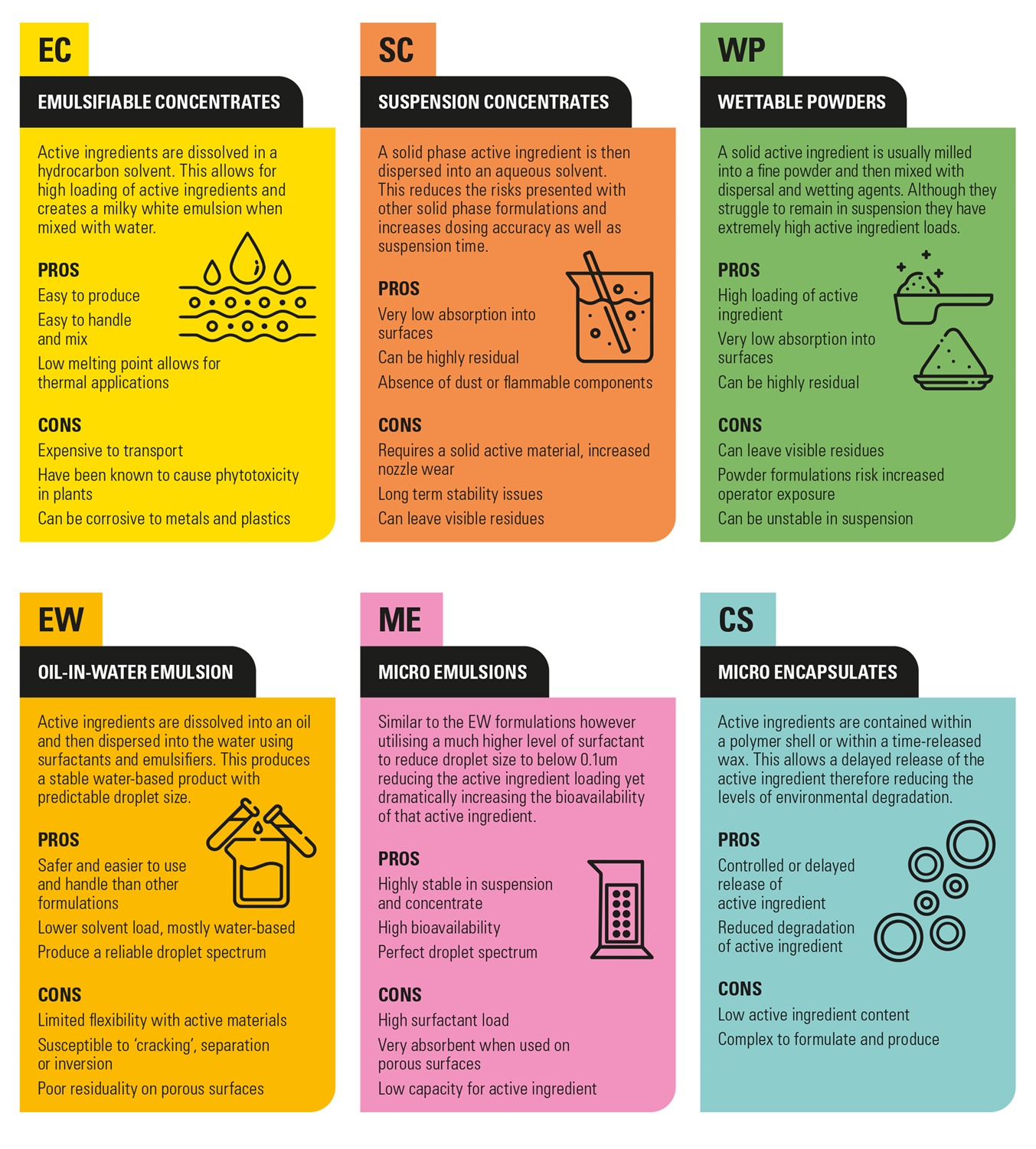TECHNICAL | PPC108 September 2022

How well do you know your insecticide formulations? Regular contributor Alex Wade helped us put together this handy little formulations guide.

(Text view)
EC - Emulsifiable Concentrates
Active ingredients are dissolved in a hydrocarbon solvent. This allows for high loading of active ingredients and creates a milky white emulsion when mixed with water.
Pros:
- Easy to produce
- Easy to handle and mix
- Low melting point allows for thermal applications.
Cons:
- Expensive to transport
- Have been known to cause phytotoxicity in plants
- Can be corrosive to metals and plastics.
SC - Suspension Concentrates
A solid phase active ingredient is then dispersed into an aqueous solvent. This reduces the risks presented with other solid phase formulations and increases dosing accuracy as well as suspension time.
Pros:
- Very low absorption into surfaces
- Can be highly residual
- Absence of dust or flammable components.
Cons:
- Requires a solid active material, increased nozzle wear
- Long term stability issues
- Can leave visible residues.
WP - Wettable Powders
A solid active ingredient is usually milled into a fine powder and then mixed with dispersal and wetting agents. Although they struggle to remain in suspension they have extremely high active ingredient loads.
Pros:
- High loading of active ingredient
- Very low absorption into surfaces
- Can be highly residual.
Cons:
- Can leave visible residues
- Powder formulations risk increased operator exposure
- Can be unstable in suspension.
EW - Oil-in-water Emulsion
Active ingredients are dissolved into an oil and then dispersed into the water using surfactants and emulsifiers. This produces a stable water-based product with predictable droplet size.
Pros:
- Safer and easier to use and handle than other formulations
- Lower solvent load, mostly water-based
- Produce a reliable droplet spectrum.
Cons:
- Limited flexibility with active materials
- Susceptible to ‘cracking’, separation or inversion
- Poor residuality on porous surfaces
ME - Micro Emulsions
Similar to the EW formulations however utilising a much higher level of surfactant to reduce droplet size to below 0.1um reducing the active ingredient loading yet dramatically increasing the bioavailability of that active ingredient.
Pros:
- Highly stable in suspension and concentrate
- High bioavailability
- Perfect droplet spectrum.
Cons:
- High surfactant load
- Very absorbent when used on porous surfaces
- Low capacity for active ingredient.
CS - Micro Encapsulates
Active ingredients are contained within a polymer shell or within a time-released wax. This allows a delayed release of the active ingredient therefore reducing the levels of environmental degradation.
Pros:
- Controlled or delayed release of active ingredient
- Reduced degradation of active ingredient.
Cons:
- Low active ingredient content
- Complex to formulate and produce.

Source: PPC108